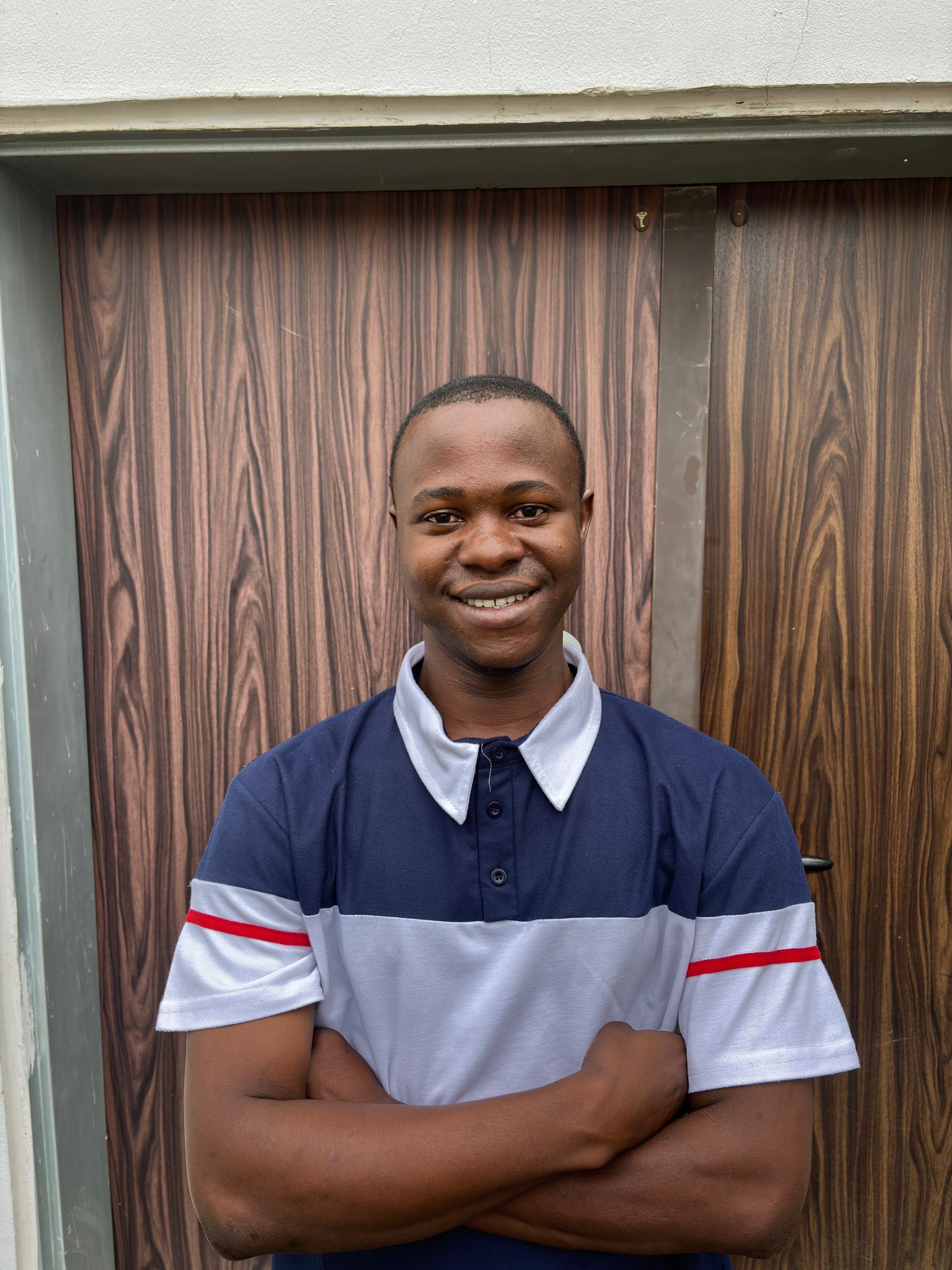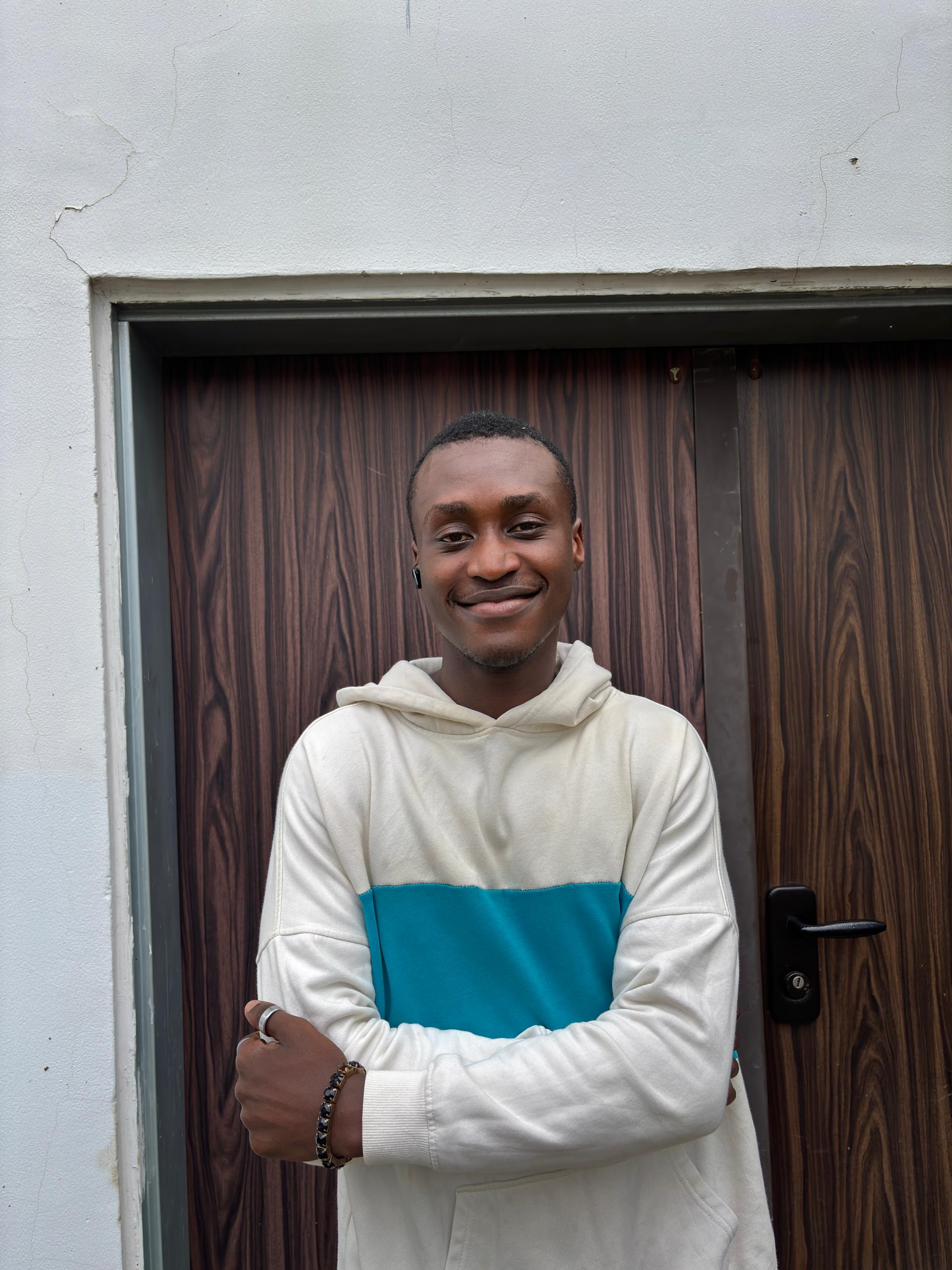







































These 3 Kaduna-based founders are reimagining everyday Bitcoin use in Africa
 AI
AI
 BTC
BTC
 WHEN
WHEN
 MUBARAK
MUBARAK
 P2P
P2P
On a warm afternoon in Kaduna, a city often described as the heartbeat of northern Nigeria’s tech awakening, three young men sat in a modest innovation hub called CoLab.
Each carried a different story: a self-taught programmer who once dismissed blockchain as a scam, a “tech intruder” whose curiosity pulled him deep into Bitcoin’s possibilities, and a first-class computer science graduate who had been hacking together projects since university.
What united them was a shared frustration: while Africans could hold digital assets, they could rarely use them for something as simple as paying for groceries or sending money home.
That frustration became TAPNOB, a platform designed to make Bitcoin practical, accessible, and usable in everyday life.
Meet the TAPNOB trio
Fishon Amos: From sceptic to builder
For Fishon Amos, now TAPNOB’s CEO, growing up across Kaduna, Abuja, and Jos instilled a resilience that would carry into his professional life.
He started as a self-taught programmer, tinkering with systems long before graduating from the Federal University of Technology, Minna. He landed his first role at MetaBlock Enterprise as a teenager in 2018. “I did everything, writing code, content, even submitting apps to the Play Store,” he recalls. Some of those apps still serve thousands of users today.

His path wound through backend engineering roles at Fixrunner and Atoma AI and a stint as a freelancer. But blockchain? At first, he wanted nothing to do with it.
“I thought it was just a scam,” he admits.
That scepticism turned into curiosity in 2021, when he began studying Web3 more deeply. His first blockchain experiment, a decentralised land registry called Landver, even drew informal government attention, though the project eventually proved too capital-intensive.
The lesson stuck: Africa didn’t need hype-driven crypto speculation. It needed financial technology that worked for people in their daily lives.
Mubarak Muhammad Aminu: A “Tech Intruder” with Bitcoin conviction
Mubarak Aminu, TAPNOB’s CTO, describes himself as a “tech intruder”. Growing up in Kaduna and Kano, he studied computer engineering at Bayero University, Kano, and stumbled into programming almost by accident.
His early career at Asusu Technologies exposed him to the world of cooperative finance, followed by a leap to Cinderbuild, where he built buy-now-pay-later tools for the construction industry, rising to lead engineer.
But it was Bitcoin that captured his imagination. Through Qala (now Bitcoin Builders), he learnt how the protocol could power financial inclusion across Africa.

An Afribitcoin Fellowship gave him the chance to attend the 2023 African Bitcoin Conference, which he calls “an eye-opener”. He began contributing to open-source projects like Fedimint and Cashu CDK before founding BitDevs Kaduna, one of the region’s first recurring Bitcoin developer meetups.
His question became the seed of TAPNOB: “How can we make Bitcoin usable in daily African life?”
Solomon Emmanuel: The Indie Hacker with an eye on scale
Solomon Emmanuel, TAPNOB’s Principal Engineer, grew up in Kaduna before studying Computer Science at Landmark University, Kwara State, where he graduated with first-class honours.
His tech journey began as an indie hacker, building small but ambitious projects entirely on his own. That gave him depth in coding, deployment, and user testing, but also a passion for products that people actually use.
Later, he shifted to working in teams, focusing on backend architecture and infrastructure. Like Amos, he was sceptical of Web3 until a series of experiments with blockchain solutions showed him that technology could, in fact, solve real-world African problems.

His current role at TAPNOB involves ensuring that, as the platform scales, its systems remain secure and reliable.
From scepticism to vision: entering Web3
All three co-founders came into Web3 with healthy scepticism. They had watched the speculative bubble sweep Nigeria, leaving many disillusioned. But their own experiments, whether Landver, open-source Bitcoin projects, or blockchain-based prototypes, convinced them that beneath the noise lay infrastructure worth building on.
The turning point came not in a whitepaper, but in lived experience: Fishon struggling to pay with USDT at Banex Plaza in Abuja; Mubarak observing families losing money to unsafe P2P exchanges; Solomon seeing ordinary users excluded from financial tools.
Those moments crystallised the conviction that Africa didn’t just need access to digital assets; it needed ways to spend them.
The trio first met at CoLab, Kaduna’s innovation hub, where ideas collided as naturally as friendships. Their first collaboration was a proptech venture called Reala, launched in 2025, which gave them confidence in their ability to execute. But their most transformative moment came at BitDevs Kaduna, the Bitcoin meetup Aminu founded in late 2024.
Amos was part of the planning team, and Solomon joined soon after. Conversations there crystallised into a new ambition: making Bitcoin usable for daily payments in Africa.
The spark that lit TAPNOB
The frustration was simple yet profound: while Africans could access Bitcoin and other digital assets, converting them for daily use was fraught with hurdles.
Traditional remittance fees could climb to 10%. Transfers often took days. Peer-to-peer trading was riddled with scams and unreliable vendors. At the height of the Binance versus Nigerian government standoff, many accounts were frozen outright.

“What if we could build something different?” Aminu asked. Not just a cash-out platform, but a system where Bitcoin could pay for groceries, bills, and transport instantly, safely, and without the middlemen.
By July 2025, the team began building the first version of TAPNOB at Bitnob’s Abuja office. Within two weeks, compliance documents were filed. By the end of the month, transactions were already flowing.
The naming story: From SatsGo to TAPNOB
At first, the platform was called SatsGo, a nod to Bitcoin’s smallest unit, the satoshi. But the name felt narrow.
“We wanted something bigger, memorable, scalable, and relevant beyond crypto insiders,” Amos explains.
They landed on TAPNOB:
Tap signalled simplicity and one-tap ease.
Nob evoked trust, status, and value.
Together, it became a brand about “tapping into freedom with Bitcoin”, both practical and aspirational.
Early wins and proof of traction
Within weeks of launch, TAPNOB processed more than 1,500 transactions worth $15,000. Early partnerships with Bitnob and Mavapay validated their approach, with more integrations on the horizon.
The team quickly distinguished itself from the peer-to-peer model. No haggling, no fake Naira, no hidden fees, just direct settlement into bank accounts or mobile wallets.
It was a small but significant breakthrough: proof that people were willing to live on Bitcoin, not just hold it.
Building TAPNOB hasn’t been without struggle. Regulatory uncertainty in Nigeria looms large.
“We want to innovate without exposing ourselves or users to unnecessary risk,” Amos notes.
User trust is another hurdle. After years of scams and failed platforms, convincing Nigerians that TAPNOB is different takes time. Liquidity remains tricky, too; converting Bitcoin into local currency reliably means navigating outages, FX volatility, and fragile fintech rails.
And then there’s the grind of being an early-stage team. “We’re building, managing the business front, handling compliance, and growing, all at once,” Emmanuel reflects. Burnout is a constant risk.

Despite the challenges, the co-founders are ambitious. In the next 12 months, TAPNOB plans to double transaction volumes monthly, refine its user experience, and expand support for stable assets.
Within three years, they hope to integrate with merchant checkout systems and expand into other African countries. Their five-year vision? To become the Bitcoin-native financial layer for Africa.
For Aminu, that future is deeply personal. “I want someone to walk into a store in Kaduna, pay with Bitcoin, and not even think twice about it,” he says. “That’s when we’ll know we’ve done it.”
For Amos, it’s about rewriting narratives: “Africa doesn’t just need hype. It needs solutions. If we can make Bitcoin practical here, we can change how people think about money everywhere.”
And for Emmanuel, it’s about building trust through reliability. “We’re not just creating a product,” he says. “We’re creating an infrastructure people can depend on.”
TAPNOB’s journey is not just about crypto or tech. It’s about three young Nigerians who took their lived experiences, scepticism, curiosity, and scrappy experimentation and channelled them into a shared mission.

